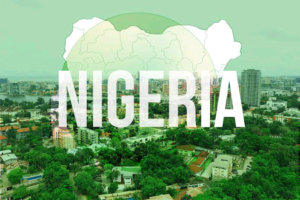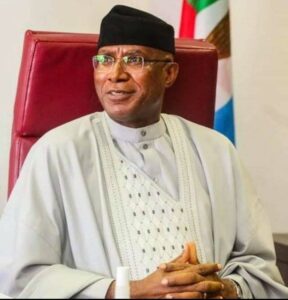RE: OIL – SWISS TRADERS SHORT-CHANGING NIGERIA, OTHER AFRICAN NATIONS – REPORT
By Zik Gbemre
We find it disturbing that despite Nigeria’s over five decades of oil and gas exploration and production, the country’s ‘Oil Wealth”, rather than make life to lot easier for Nigerians; the common man is being made to practically experience the opposite. Nigeria’s Oil Wealth, rather than being a blessing, is daily turning out to be a curse. Surprisingly in the midst of all this, majority of the stakeholders in the industry and those in government circles with the cooperation and connivance of foreign oil traders, are getting richer by the day from this same Oil Wealth. This makes the level of corruption; evident in the industry so enormous that it cannot be compared to any other.
Our attention was drawn to a recent report which revealed that Swiss oil Traders are seriously short-changing Nigeria and other African oil producers through shadowy oil deals, according to indications from a recent study of the top ten African oil producers. The report, “Big Spenders: Swiss Trading Companies, African Oil and the Risks of Opacity, published by Bern Declaration (BD), a Switzerland-based non-profit transparency organization, examined the process involved in the sales of crude oil to Swiss commodity trading companies by Sub-Saharan African countries between 2011 and 2013. The report was co-authored by another Swiss NGO, SWISSAID, and an American one, The Natural Resources Governance Institute (NRGI).
The said report observed that Swiss companies purchased over 500 million barrels of crude valued at $55 billion from 10 sub-Saharan African countries within the period under review. According to BD, the figure “equals 12 percent of the governments’ revenues, and is double what they received in foreign aid.” Pointing out that Swiss trading companies are the largest buyers of crude from Cameroon, Chad, Equatorial Guinea, Gabon and Nigeria, BD states that these purchases are subject to governance risks because “they take place in environments of weak institutions and widespread corruption”. In Nigerian, for instance, BD puts the value of crude sold to Swiss trading companies at $37 billion which makes up more than 18 per cent of total government revenue in the period under review.
The report further noted that the Swiss traders are involved in broader poor governance and corruption. One of the Swiss companies, Gunvor, is currently being investigated for money laundering in relation to its purchase of crude worth $2 billion from the Republic of Congo’s NOC at a discounted price of $4 per barrel. In Nigeria, Africa’s largest economy, government and independent reports suggest that the Nigeria National Petroleum Corporation, NNPC, the state-run operator, has sold crude below market value to its subsidiary based in Bermuda, Calson, where Swiss firm Vitol holds a 49 percent stake. According to the report, NNPC also sells to some entities referred to as “briefcase traders,” some of which are controlled by politically exposed individuals. Other Swiss traders listed in the research have also been indicted in one ‘shady’ deal or the other.
It observed that unlike most major crude producers around the world, which prefer to sell crude directly to refineries and end users, the NNPC, sold over a third of Nigeria’s crude between 2011 and 2013 to Swiss companies alone. “In 2011 and 2012, Swiss companies bought almost half of the identified export sales made by the NNPC, an estimated $27 billion worth of crude. While this figure dropped to a little less than one third in 2013, as Nigerian companies became bigger buyers, Swiss companies still bought government crude worth an estimated $10 billion,” the report stated.
According to BD the annual term contract through which the NNPC selects companies that are eligible to buy crude is so skewed by ‘favouritism’ and corruption with its criteria for selection so opaque that it could only be likened to the process of selecting the winner of a beauty pageant. The report states that many of the trading companies on the list are allowed to lift far more that the quantity they are officially allotted. “In 2012, Vitol and Trafigura each received term contracts worth 30,000 barrels per day. Each of the companies also operates its own oil marketing joint venture with NNPC (both based in Bermuda: Calson for Vitol and Napoil for Trafigura), and these entities each received additional 30,000 barrel per day allocations that year.
However, rather than 60,000, market data suggests that Vitol bought closer to 145,000 barrels per day in 2012, and Trafigura 97,000—far exceeding their allotted shares, and a discrepancy that illustrates the laxity of the system. In fact, some companies, which do not appear on the award list, are allowed to lift crude. Particular mention was made of Swiss firm, Arcadia, which lifted 19 cargoes between 2011-2013 despite not being approved to lift crude. Nigeria’s award of the term contracts is a discretionary and politicized process, with companies gaining and losing allocations depending on their relationship with the officials in charge and the influence of their local contacts or ‘sponsors,” the BD report states. The report also points out that the NNPC sells crude to politically exposed “briefcase traders” who in turn sell to Swiss trading companies at a margin “effectively privatizing a profit that could go to the states that sold the oil”.
Last year, another report by BD says Nigeria lost billions of dollars through this deliberate undervaluing of its crude by the NNPC. Stressing “Africa’s producers’ lack of many of the checks and balances needed to safeguard the public interest”, the authors of the research cited the 2013 Resource Governance Index, which ranks Nigeria, Cameroon, Angola, Equatorial Guinea and South Sudan in the bottom third of the 58 resource-rich countries assessed. While the report recommends that oil-producing governments and NOCs should shun favouritism in the selection of buyers and determination of the selling price, and also disclose how the state’s share of production is allocated and sold, it maintains that the transactions between African governments and Swiss companies deserve attention “because they are vulnerable to governance risks.”
A development that, however casts a shadow of doubt on a stop to the opaque deals anytime soon is that the Swiss government last month indicated that trading activities that dominate the Swiss commodities sector would be exempted in its forthcoming legislation on transparency. “The Swiss government has acknowledged the risks that the sector poses for Switzerland’s reputation and the importance of transparency,” said co-author of the report, Marc Guéniat, Berne Declaration senior researcher. Guéniat laments that instead of working to stop the opaque dealings, Switzerland is proposing a bill that does little to guard against its trading companies’ contribution to the ‘resource curse’.
In order to solve this glaring compromised process, BD calls for better transparency in the system. It advises producing government to select “buyers through a method that reduces opportunities for favoritism, bribery and manipulation.” BD suggested “attracting the best possible return for the oil in question, as losses of just pennies per barrel can add up to significant revenue shortfalls; and insist on “collecting and transferring the revenues to the treasury through a rule-based process that reflects clear national priorities.” In order to achieve this, BD suggested methods that Nigeria could adopt in the sale of its crude oil. It believes the country should be transparent about:
– The name, beneficial owner and country of incorporation of the buying company the volume, grade, and date of any sale, broken down by cargo where appropriate;
– The price, and how it was determined
– The revenue received for each cargo, and the destination of that revenue (e.g., used by NOC to purchase fuel, transferred to the national budget, transferred to a local government)
– A full explanation of the process for choosing the buyer (e.g., the allocation of a term contract, an open tender)
– The full text of the related contract (e.g., term contract, agreement to swap crude for refined products).
The report also called on Switzerland to do more in the area of transparency as the centre of commodity trading in the world. BD said, “Switzerland should accept its responsibility as the world’s leading commodity trading hub and pass regulation that requires Swiss companies producing or trading in natural resources to disclose all payments made to governments and state-owned companies, including payments associated with trading activities. In a 25 June 2014 report, the Swiss federal government indicated a preference to exclude trading-related payments from future regulation of this kind. If that position holds, the payments described in this report would remain secret.”
Despite the fact that the oil and gas industry in Nigeria is reported to be the largest industry and main generator of GDP in the continent’s most populous nation, the majority of the citizen’s standard of life is nothing to write home about. The discovery of the oil wealth has been marred by political and economic strife due to a long history of corrupt military and civilian regimes/dispensation, and the complicity of IOCs. With the advent of a democratic government in 1999, many thought that things would be better. But that has not been the case till date.
Every time we try to describe Nigeria’s situation and all that portends to its over fifty years of oil exploration and existing independently amongst the comity of nations, the word ‘paradox’ readily comes to mind. This contrast in the description is often revealed when we consider the country’s standard of living (witnessed by its citizenry) when compared to the country’s national income. It is like comparing dog and mouse. The disparity that exists between what the country is actually earning and the sub-human living conditions of its citizenry, is enough to agitate any sane mind and send cold shivers down the spine. It makes one wonder: what is actually wrong with this country of ours? Where are we heading to? What kind of future does this hold for our children?
But the underlining factor responsible for this unfortunate situation has always been that of bad leadership that are often rot with corruption. In other words, it would be very naïve to jump to the conclusion that all resource abundant countries are ‘cursed,’ whereas not all resource-rich countries have experienced the resource ‘curse’ phenomenon. The resource abundant countries (e.g. Nigeria, Sierra Leone, Angola, Venezuela etc) seem to lag behind countries with less resource like the Asian Tigers: Hong Kong, Korea, Singapore, in economic growth and development. Succinctly, these diverging experiences and situations have been associated with the quality of the country’s institutions that is adequately and appropriately managing the natural resources through good governance/leadership. Rather than use the wealth from the oil industry to create institutions that are producer friendly, and that would develop other sectors like Agriculture, Tourism, Education etc, our leaders have over the years, succeeded in neglecting these vital sectors to rot and decay. Thereby making the oil wealth a curse rather than a blessing to the populace.
It is imperative for the Federal Government to use the wealth from the export of crude oil and natural gas to develop other areas of the country’s oil sector, particularly the area of refining capacity for domestic and export purposes. The bottom line is that oil-resource wealth can only become a ‘curse’, rather than a ‘blessing’, to any nation through the instrumental hands of those placed as custodians of such wealth. Just as natural resources remain a blessing for countries such as Botswana, Canada, Australia, Norway and others, the same cannot be said about countries such as Nigeria and Venezuela. We should therefore focus on doing things differently in this country. For instance, with the facts revealed above by the foreign organizations, Nigerian relevant authorities should not take things lying low. Appropriate steps should be taken to investigate the facts revealed and those found wanting, no matter how highly placed they are, should be dealt with the full wrath of the law.
The level of impunity with which corrupt practices are allowed to thrive in Nigeria’s oil sector, seriously and urgently needs to be uprooted. The current administration of President Jonathan has to demonstrate the will and courage to see that the nation’s oil sector is overhauled completely and rid of corrupt practices in high places.
Zik Gbemre, National Coordinator



